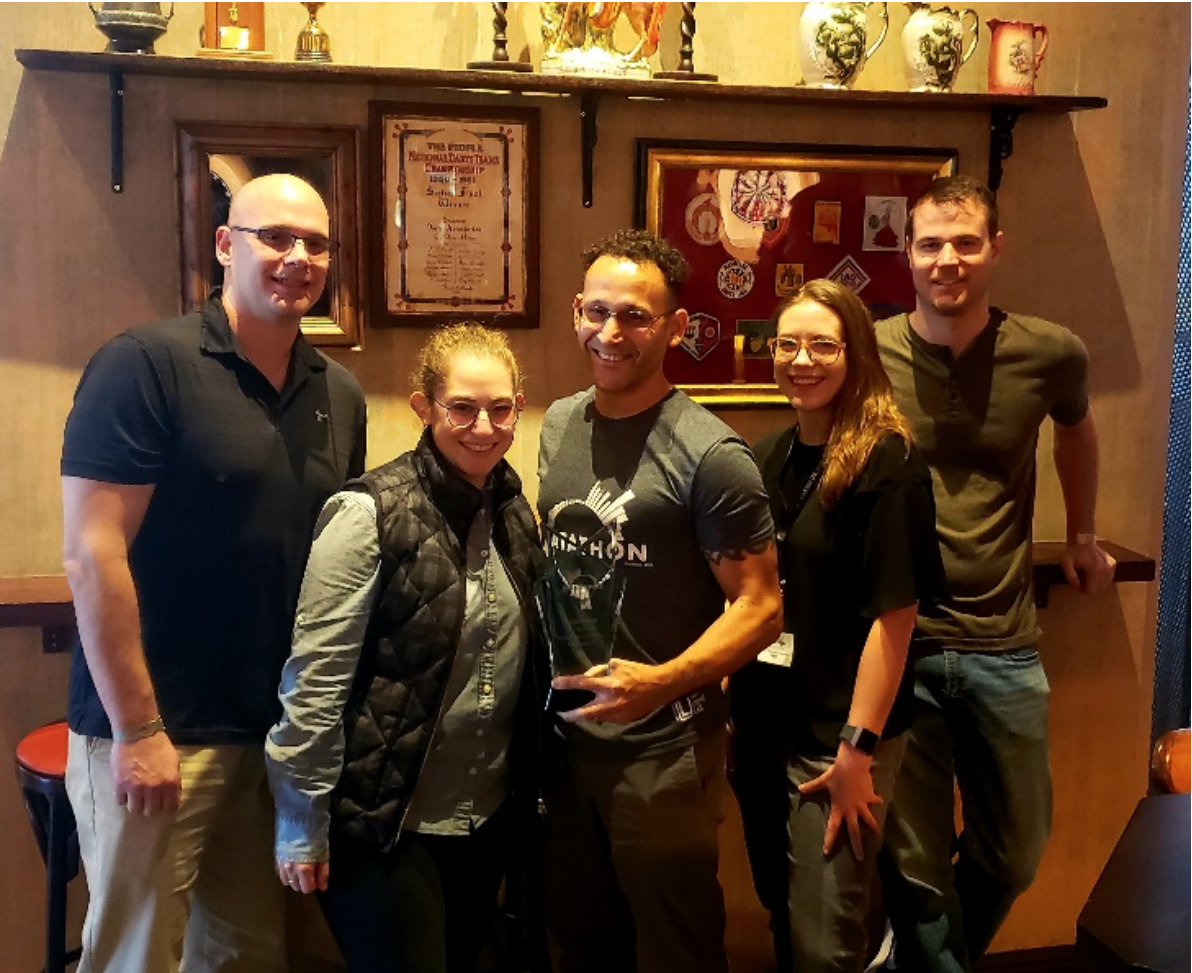“Code out Violence: A Datathon for Crime Analysts” Empowers Participants to Build Data-driven Tools to Combat Violent Crime
By The University of Chicago Crime Lab Team
For the past ten years, the University of Chicago Crime Lab has worked closely with law enforcement agencies across the country to help integrate data analytics into their decisionmaking processes. Data analytics training for crime analysts has been a growing part of our work at the Crime Lab, and we wanted to expand to help law enforcement civilian analysts. Specifically, we began to consider what an ideal professional development event for analysts would look like. Our answer to that question was an event called “Code out Violence: A Datathon for Crime Analysts,” which was held October 25–27, 2019.

We decided to focus on gun violence, because many cities around the country are struggling with elevated levels of violent crime and illegal firearm use. The three-day event was designed to give analysts the opportunity to learn about new technologies, analytical products, and research methods while working to produce highly actionable solutions to gun violence. Teams were formed, and participants built and presented their own analytical products. We partnered with the Bureau of Justice Assistance (BJA) National Training and Technical Assistance Center (NTTAC) on the event to ensure analysts received the necessary financial support to attend.
Our goals for the Datathon were: (1) give participants the time and resources to develop new, useful analytical products, and (2) foster a dynamic community of practice among civilian crime analysts.
The event concluded with presentations from each of the six teams. No two products were the same, but all teams found innovative ways to use data to reduce gun violence. The effort and imagination that went into the products was truly inspiring.
 The team that won the best overall award for Code out Violence 2019 designed a dashboard to assist the King County, Washington Prosecutor’s Office by identifying cases that require an experienced prosecution attorney’s attention. If implemented, this team’s product would reduce the time it would take an attorney to manually review the court to most effectively assign cases based on prosecutor expertise. The team member from the King County Prosecutor’s Office, based on the success of the Datathon product, presented the product to the prosecutor’s office. Participants’ enthusiasm when introducing their ideas to their own departments to impact their work was the best result we could have imagined.
The team that won the best overall award for Code out Violence 2019 designed a dashboard to assist the King County, Washington Prosecutor’s Office by identifying cases that require an experienced prosecution attorney’s attention. If implemented, this team’s product would reduce the time it would take an attorney to manually review the court to most effectively assign cases based on prosecutor expertise. The team member from the King County Prosecutor’s Office, based on the success of the Datathon product, presented the product to the prosecutor’s office. Participants’ enthusiasm when introducing their ideas to their own departments to impact their work was the best result we could have imagined.
Another ambitious product involved using spatial analytics to determine nearby, shared spatial characteristics of crimes. The team endeavored to discern the impacts of a cluster of neighborhood bodegas, alcohol stores, bus stops, and other geographic factors on crimes in that area. The goal was to understand the spatial relationships of crime and its surroundings to better direct law enforcement when and where patrols of specific locations could be most effective, as well as to understand how changing geographic factors could impact public safety.
Participant feedback from our exit survey was overwhelmingly positive. Participants noted that they gained important learning and skills development while also increasing their networks in this growing field. Participants also overwhelmingly remarked that they would recommend this event to colleagues and enjoyed networking and team-building opportunities throughout the event. Having participants from around the country allowed for various perspectives to be shared — but still tailored toward a common goal.
We hope that this event will kickstart similar events focused on analysis, coding, law enforcement data, and networking opportunities for analysts around the country.
For more information regarding Code out Violence, visit GitHub at https://github.com/code-out-violence.
If your jurisdiction is in need of training or technical assistance related to crime analysis, or if you know of a community that would benefit from this type of assistance, please contact BJA NTTAC at BJANTTAC@ojp.usdoj.gov. You may also contact the Violence Reduction Response Center — DOJ’s one-stop shop for connecting state, local, and tribal justice agencies with the most appropriate violent crime reduction TTA resources available — at ViolenceReduction@usdoj.gov or 1-833-872-5174.
If you are interested in submitting the work of your organization or jurisdiction for consideration in a future blog post or in obtaining information related to a particular topic area, please email us at BJANTTAC@ojp.usdoj.gov.
Points of view or opinions on BJA NTTAC’s TTA Today blog are those of the author(s) and do not necessarily represent the official position or policies of the U.S. Department of Justice, BJA, or BJA NTTAC.